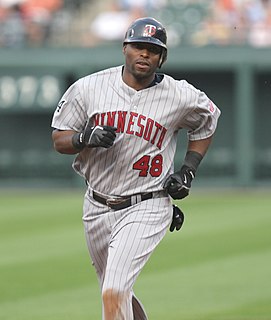A Quote by Graeme Goldsworthy
The strength of Ray Ortlund's study of Proverbs is its Christ-centeredness. The wisdom of Proverbs loses none of its practical value, but rather is given its ultimate fulfillment as an expression of the wisdom of Christ.
Related Quotes
I'm always looking for ways to explore the politics of the everyday. For me, the proverbs were a way of bringing in this ancient wisdom that in Arabic culture is often quoted. Those proverbs are such a huge part of the language and parts of people's every day. This is the wisdom that we use in our everyday life but we're not always listening to.
We have been counseled to "seek . . . out of the best books words of wisdom." It is pointed out in Proverbs, "Wisdom is the principal thing; therefore get wisdom." (Proverbs 4:7.) But in getting wisdom and getting knowledge, above all we should "get understanding." It is important to learn a profession, learn a trade. That applies not only to the young men, but it applies to you young women as well. You girls should place yourselves in a position to be self-supporting and independent in the event that tragedy or an emergency comes, for emergencies have come and will continue to come.
Proverbs, and the wisdom literature in general, counter the idea that being spiritual means handing all decisions over to the leading of the Lord. The opposite is true. Proverbs reveals that God does not make all people’s decisions for them, but rather expects them to use his gift of reason to interpret the circumstances and events of life within the framework of revelation that he has given. Yet when they have exercised their responsibility in decision-making, they can look back and see that the sovereign God has guided.
The whole story of the Father's Christ-exalting plan of redeeming love, from eternity to eternity, must be told, or the radical reorientation of life for which the gospel calls will not be understood, and the required total shift from man-centeredness to God-centeredness, and more specifically from self-centeredness to Christ-centeredness, will not take place.
The ultimate difference between God's wisdom and man's wisdom is how they relate to the glory of God's grace in Christ crucified. God's wisdom makes the glory of God's grace our supreme treasure. But man's wisdom delights in seeing himself as resourceful, self-sufficient, self determining, and not utterly dependent on God's free grace.
Phronimos, possessing practical wisdom . But the only virtue special to a ruler is practical wisdom; all the others must be possessed, so it seems, both by rulers and ruled. The virtue of a person being ruled is not practical wisdom but correct opinion; he is rather like a person who makes the pipes, while the ruler is the one who can play them.
The hope of the world is that wisdom can arrest conflict between brothers. I believe that war is the deadly harvest of arrogant and unreasoning minds. And I find grounds for this belief in the wisdom literature of Proverbs. It says in effect this: Panic strikes like a storm and calamity comes like a whirlwind to those who hate knowledge and ignore their God.


































